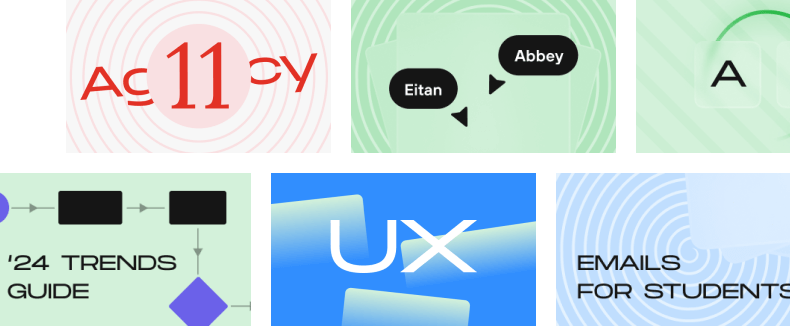Businesses rely on email marketing software to simplify the process of connecting with their audience, building relationships, and generating revenue. Below we will examine the definition, usage, and types of email marketing software, with the exact examples. After reading this glossary entry, you will get to know how email marketing software helps businesses communicate effectively and achieve marketing success.
Definition of email marketing software
Email marketing software automates, streamlines, and enhances email marketing campaign creation. Businesses can use it to nurture leads, engage with customers, and promote their products or services efficiently by sending targeted and personalized emails to subscribers.
Email marketing software offers features like contact management, email templates, automated workflows, analytics, and reporting that companies need to establish comprehensive and effective email marketing campaigns.
Where email marketing software is used
Businesses of all sizes, from startups to multinational corporations, use email marketing software to engage their audience, drive traffic, and boost sales. Businesses use email marketing software, especially in eCommerce, to send promotions, abandoned cart reminders, and product recommendations.
Charity organizations use email marketing software to communicate with donors and spread the word about their missions. Educational institutions use this software to share updates and announcements with students and faculty, while service-based businesses employ it to nurture leads and maintain relationships with clients.
How email marketing software works
1. Contact management
Email marketing software allows businesses to store and organize their contact lists efficiently. It is possible for marketers to segment contacts based on various characteristics, such as demographics, behaviors, and engagement levels, which allows them to send valuable and personalized content to targeted groups.
2. Email creation
Marketers can create engaging and visually appealing emails without the need for coding or design skills with email marketing software. The software provides a variety of professionally designed email templates that can be customized to match their brand identity.
3. Automated workflows
With email marketing software, companies can create automated email workflows, also known as drip campaigns. Such campaigns trigger emails based on specific actions, such as a new subscriber joining the list, a purchase by a customer, or a shopping cart abandonment. With automation, you can deliver targeted messages to the needed recipients at the right time, improving engagement and conversion rates.
4. A/B testing
Email marketing software offers A/B testing capabilities, which allow marketers to test different elements of their emails, such as subject lines, content, and call-to-action buttons. In addition, marketers can analyze different variations to identify the most effective email marketing strategy and optimize their emails accordingly by analyzing their performance.
5. Analytics and reporting
Comprehensive analytics and reporting tools are integral to email marketing software. Open rate, click-through rate, conversion rate, and unsubscribe rate are key metrics that marketers can use to measure campaign effectiveness and make data-driven decisions for the future.
Types of Email Marketing Software
- Basic email marketing software: This type of software caters to businesses with fundamental email marketing needs. It typically includes features such as email templates, contact list management, and basic analytics.
- Advanced email marketing software: It benefits big businesses and marketing teams. This software provides powerful automation features, advanced segmentation, A/B testing, and detailed reporting.
- All-in-one marketing automation platforms: These platforms bring together email marketing with other marketing channels like social media, SMS marketing, and customer relationship management (CRM) tools.
Examples of email marketing software
- Mailchimp: Known for its user-friendly interface and comprehensive features, Mailchimp is a popular choice for businesses of all sizes. It offers customizable templates, audience segmentation, automation, and insightful analytics.
- HubSpot: HubSpot is an all-in-one marketing automation platform that provides both email marketing and CRM. It also includes social media management, and content creation tools, helping businesses to manage end-to-end marketing campaigns.
- Constant Contact: Constant Contact includes easy-to-use email templates, contact management, and built-in tracking to estimate email marketing campaign performance. Mostly suits small enterprises and startups.
Wrapping up
Using email marketing tools, businesses can improve communication with their audience, strengthen marketing efforts, and meet their marketing objectives. Personalized and targeted email campaigns can be created utilizing email marketing software and either simple or advanced automation platforms.


